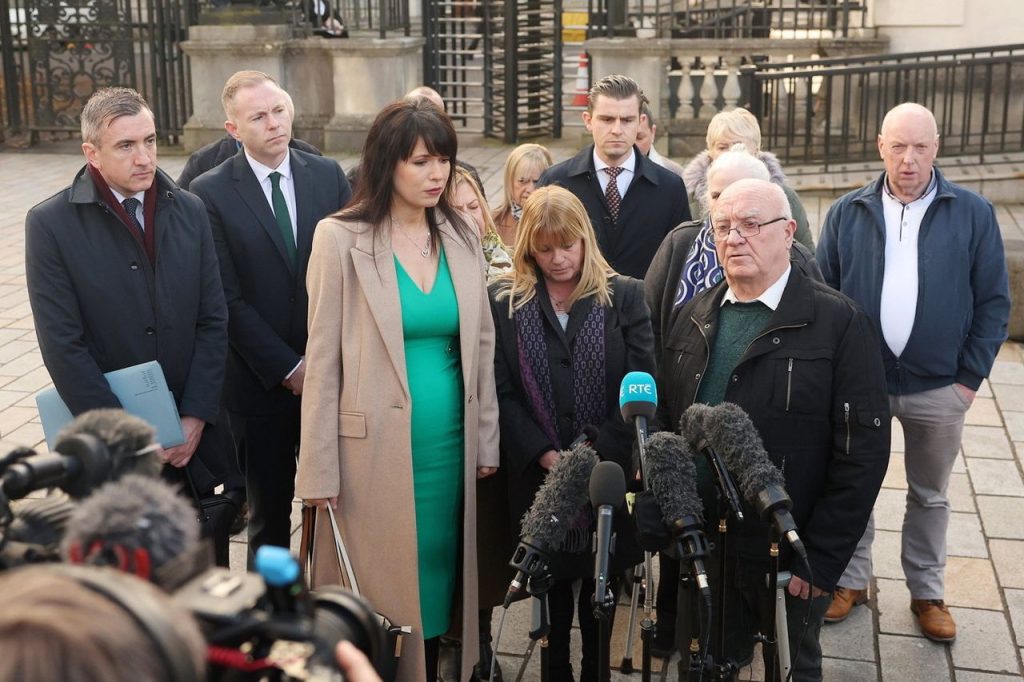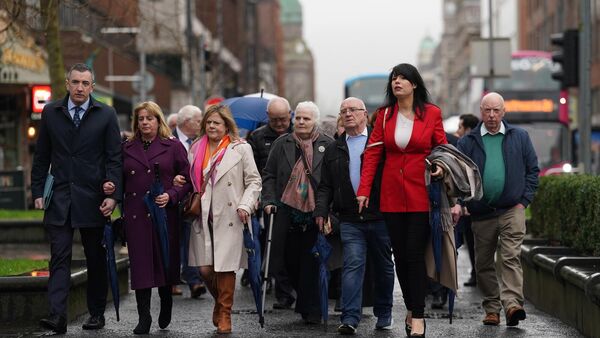
Judicial Review against the Legacy Act is successful. The Full Judgment is available here and a Press Summary is available here. The various media reports are available on the BBC, ITV, the Guardian and The Irish Times . This was the first case in which legislation has been set aside under the Windsor Framework / Northern Ireland Protocol.
Conditional immunity from prosecutions for Troubles-related killings, a central clause of the UK government’s controversial Legacy Act, is in breach of international human rights law, a judge has ruled.
Mr Justice Colton told the High Court in Belfast he was “satisfied” the provisions for immunity from prosecution under section 19 of the Northern Ireland Troubles (Legacy and Reconciliation) Act were in breach of articles 2 and 3 of the European Convention on Human Rights (ECHR) and article 2 of the Windsor Framework (WF) and this part of the legislation should be disapplied.
Running to more than 200 pages, a summary of the judgment was read to victims’ families and campaigners in the packed courtroom over a two-hour period on Wednesday morning.
The judge described it as a “very difficult and complex case”.
Dealing with the issue of immunity being offered to perpetrators of conflict-era crimes if they co-operate with a new UK body set up by the Act, the Independent Commission for Reconciliation and Information Recovery (ICRIR), he said: “There is no evidence that the granting of immunity under the Act will in any way contribute to reconciliation in Northern Ireland; indeed, the evidence is to the contrary.”
He also ruled that part of the legislation which stipulated an end to Troubles-related civil claims was incompatible with article 6 of the ECHR and article 2 of the WF and “should therefore be disapplied”.

In a ruling he referred to as a “mixed bag”, the judge concluded however that the ICRIR had had sufficient independence and powers to effectively investigate deaths and offences linked to the Troubles.
The Legacy Act, which became law in September, replaces current methods of criminal and civil investigations and inquests with inquiries by the new UK investigative body, the ICRIR, and offers conditional immunity to those suspected of offences in what has been branded an effective amnesty.
The Act is fiercely opposed by the North’s main political parties, the Irish Government, US politicians and human rights groups. The High Court legal challenge was brought by relatives of victims and the survivor of a shooting.
Speaking outside the court following the judgment, Martina Dillon, vowed to “fight on” for her husband – who was killed in retaliation of the murder of Loyalist Volunteer Force (LVF) leader Billy Wright – and said it had been a “long 26 years”.
“But I ain’t going nowhere. No government and no court is going to put me down. I think my husband is entitled to truth and justice and that is the last and only thing I can give him.”
Solicitor Darragh Mackin, of Phoenix Law, who acts for the families, said he was aware that Mr Heaton-Harris had indicated the UK government would appeal the High Court judgment.
“If so, we’re ready for it,” he told reporters outside the court.
“This will go the whole way to the Supreme Court. This can be distilled down to a very simple point: the Secretary of State’s proposal was built on the foundation of immunity. The court has struck that proposal out. Those foundations are gone, it’s time to go back to the drawing board.”
Our Mr Darragh Mackin, Gavin Booth and Harry Robinson acted on behalf of the lead applicants in this case. Ms Sinead Marmion acted for the Intervener, Amnesty International (UK).